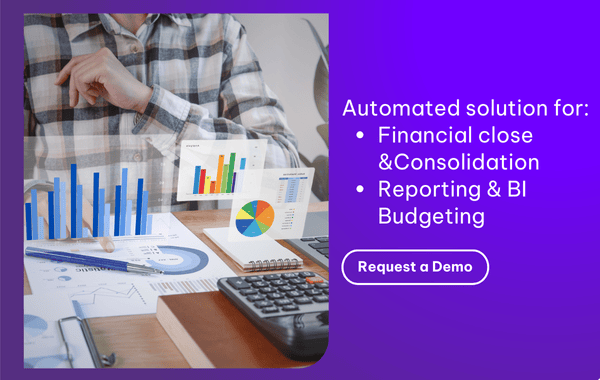In 2010, Aberdeen Group carried out a study, which shows the graded popularity of standalone consolidation/reporting tools and consolidation/reporting tools included in ERP systems among best-in-class, industry average and laggard companies. The results indicate that standalone or specialised financial reporting and consolidation tools (71%) were preferred over consolidation features included in ERP applications (37%) by best-in-class companies.

More recently, Ventana Research (2012) concluded that, on average, businesses that use financial close software rather than spreadsheets save at least one day in their monthly and quarterly close, and that those using consolidation software close their books 7% faster than companies using their ERP system to do so.
Read more: Approaches towards book closing and financial consolidation
Specialised financial consolidation tools seem to have many advantages and businesses should seriously consider them. But what does an ideal application look like? An ideal application:
Ensures data integrity
Data integrity is measured by the data’s accuracy and consistency. The tool must be able to automate data loading, consolidation and validation from multiple entities into a central, secure datacentre, which creates a single version of truth. All changes made are also replicated throughout the system to reduce unnecessary variance analyses.
Read more: Intangible assets: a new financial management challenge
Moreover, a financial consolidation solution should feature built-in calculations to accurately handle currency conversions, group ownership and so on.
Supports compliance
Financial close software should help ease external compliance pressures rather than complicate things. Companies should be able to adjust data for consolidation issues and reporting requirements, both internally and externally. While being able to do so, businesses should also be able to keep track of all the changes through the audit trail capability.
Also, consolidation software should automatically handle exchange gains and losses, and eliminate consolidation adjustments such as minority interests, joint ventures, intercompany eliminations and allocations.
Generates insight
This is considered the main advantage of specialised consolidation tools over ERP systems. Thus, the close software should be able to create standard as well as exception reports and interactive analytics.
Moreover, companies should be able to view data under multiple presentation formats (e.g., graphs, charts, dashboards) as well as perspectives (e.g., region, product line) for optimal analysis. By being able to get an overall view of impacted financial data and journals, management can reasonably determine the most efficient consolidation path to incorporate modified data.
***
Having the right software is one of the key components to achieving a fast close, along with good execution of a well-designed process and effective data management. Check out our full whitepaper “Financial Consolidation: Building a bridge to operational excellence” to learn about the best-in-class solution.
Like what you've read? Click here to subscribe to this blog!
 English
English  Vietnamese
Vietnamese 



